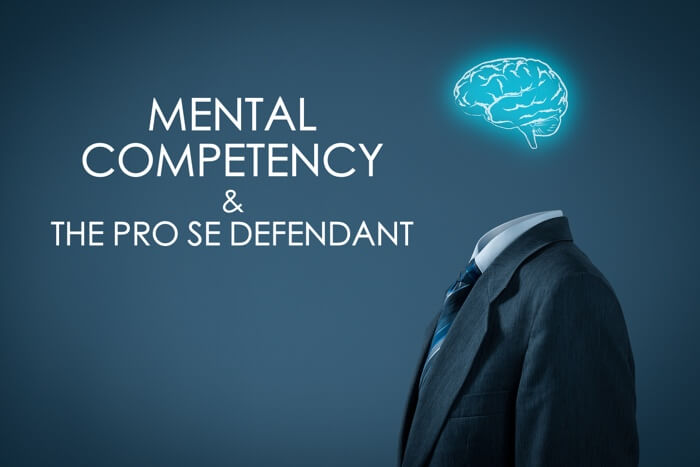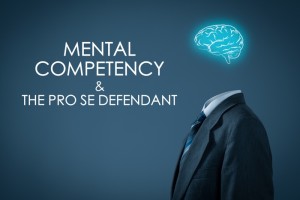
“The man who represents himself has a fool for a client.”
 Regardless of whether the decision may be unwise, a criminal defendant has the right to represent himself or herself at trial. But, as explained by the US Supreme Court in Indiana v. Edwards (554 US 164, 171), this right is not absolute. A defendant must be mentally competent to represent oneself at trial. In Logan v. State, the 2nd Court of Appeals (Fort Worth) explains “competence to stand trial is not alone the test for competence to represent oneself at trial.” Here’s what happened in Logan…
Regardless of whether the decision may be unwise, a criminal defendant has the right to represent himself or herself at trial. But, as explained by the US Supreme Court in Indiana v. Edwards (554 US 164, 171), this right is not absolute. A defendant must be mentally competent to represent oneself at trial. In Logan v. State, the 2nd Court of Appeals (Fort Worth) explains “competence to stand trial is not alone the test for competence to represent oneself at trial.” Here’s what happened in Logan…
Defendant Requests to Represent Herself
Charise Logan was charged with criminal trespass for being on the UTA campus after she had been warned not to return. Ms. Logan requested to defend herself in court. The trial judge of County Criminal Court Number 1 in Tarrant County inquired as to whether Ms. Logan understood her right to an attorney. She answered that she understood, but added that she did not believe she could find an attorney who was not part of the “conspiracies against her.”
Trial Judge Orders Mental Competency Evaluation
The trial judge inquired as to whether the defendant has ever been treated for a mental illness. Ms. Logan answered that she had, but that it was 10 years ago. The trial judge then ordered a competency evaluation, which was conducted by a psychologist. The psychologist reported that the defendant had an “unspecified personality disorder,” but that she was competent to stand trial and to consult with counsel. There is plenty more about the defendant’s competency exam if you read the full opinion.
The Case Proceeds to Trial | Defendant Explains the “Conspiracy”
Ms. Logan’s case proceeded to trial, with her acting as her own counsel, despite her documented mental illness. At a pretrial hearing, the defendant filed a document explaining that she had been:
hunted by a secret society and currently, a sex ring for several years of [her] life” and outlines a pattern of harassment and surveillance of her conducted by the secret society. Appellant implicates President Barack Obama and the family of former President George H.W. Bush in this conspiracy. According to the pro se document, the secret society surveilled Appellant between 2011 and 2015. Appellant alleges in the document that the secret society used witchcraft, voodoo, and blackmail to force unwilling participants to engage in activities against her. She further alleges that the conspiracy was after her because of the auditory and visual gifts bestowed upon her by God.
Because the defendant did not request and relief in her filing, the trial court did not have anything on which to rule. The court took no additional action based on this “information.” The trial proceeded and a jury convicted the defendant of criminal trespass.
Appellate Issues Concerning Competency of Pro Se Defendant
On appeal to the 2nd Court of Appeals (Fort Worth), the fundamental issue was whether the trial court erred in allowing the defendant to represent her. Finding error, the appellate court held:
when determining the ability of a defendant to represent herself pro se, the trial court should take a realistic account of the particular defendant’s capacity to represent herself. A person could be capable of working with counsel at trial and thus meet the test for competency set out in Dusky v. United States (362 US 402), yet at the same time be unable to carry out the basic tasks necessary to present her own defense without the assistance of counsel.
Appeals Court Reverses the Conviction
The appellate court set aside the Ms. Logan’s conviction and remanded the case for a new trial. In so doing, Justice Dauphinot explained that “[t]he trial court deprived Appellant of counsel by accepting her waiver of counsel that was neither voluntary nor knowing. Such error is automatically reversible.” The court went further to hold that it was error for the trial court to order a mental competency evaluation without counsel being present. While issues like these are rare, we are starting to see more and more mental health cases that could turn out like this one, if the right steps are not taken.







